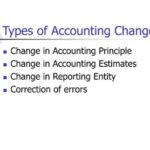Content

A third type of expense is Depreciation and Amortization, which are costs a company incurs from the obsolescence and inadequacy of its fixed assets. So, every time our expenses rise, they get “debited” in the ledger, and every time they fall, they are credited. Modern accounting grows from the principle of debits and credits and applies them to items such as Assets, Liabilities, and Equity. These three in particular make up the basic accounting equation.
- Understanding debits and credits—and the fact that debits are on the left and credits are on the right—is crucial to your success in accounting.
- Conversely, an increase in liabilities is a credit because it signifies an amount that someone else has loaned to you and which you used to purchase something .
- The accounts payable account will be debited to remove the liability, and the cash account will be credited to reflect payment.
- Debits and credits are an element of the double-entry accounting system.
- Accurate bookkeeping can give you a better understanding of your business’s financial health.
- Understanding the definition of an account in accounting terms is important.
Energize your accounting team by creating capacity with automation. Invest in your future by unifying and automating accounting work. Centralize, streamline, and automate intercompany reconciliations and dispute management. Unlock growth capacity Debits And Credits with tax-effective intercompany operations. Control, validate, and streamline financial statement analyses. Create, review, and approve journals, then electronically certify, post them to and store them with all supporting documentation.
Rules of Debit and Credit
In other words, when you make a journal entry, you are either increasing an asset or decreasing an expense or liability. You are not allowed to increase both at the same time; you must choose one or the other. An accounting system tracks the financial activities of a specific asset, liability, equity, revenue or expense. You’ll record each individual account in a ledger and use this information to prepare your financial statements.

Here are a few examples of common journal entries made during the course of business. In the below example, Jaclyn, the owner of a coffee shop, purchased an espresso maker. While the new espresso maker is an asset that is increasing, the supplier https://quick-bookkeeping.net/best-invoicing-software-for-small-businesses-2021/ of the espresso maker agreed to bill Jaclyn at a later date. As such, this liability is increasing, as Jaclyn now owes that money to her supplier. You might think of G – I – R – L – S when recalling the accounts that are increased with a credit.
Why Are Debits and Credits Important?
However, postings on the left are not automatically considered increases, just as postings on the right are not automatically decreases. Accounting ends with score keeping but begins with record keeping. The first task of accounting is to accurately record transactions. Transactions are events that change the composition of a firm’s assets, liabilities, and equity. Finally, expenses function opposite of revenue because they reduce owner’s equity.
- Just like our salary is being “credited” to our accounts every month, or withdrawn with a “debit card” at the ATM.
- Only then can a company go on to create its accurate income statement, balance sheet and other financial documents.
- If you invest more money, your assets in the company will increase and your equity in the company will also increase .
- These three in particular make up the basic accounting equation.
- Moreover, accountants utilize the backbone of the system to add value to the world of financial services via a set of functions known as financial accounting.
Global and regional advisory and consulting firms bring deep finance domain expertise, process transformation leadership, and shared passion for customer value creation to our joint customers. Our consulting partners help guide large enterprise and midsize organizations undergoing digital transformation by maximizing and accelerating value from BlackLine’s solutions. Check out our most recent webinars dedicated to modern accounting. If you recently attended webinar you loved, find it here and share the link with your colleagues. Explore our schedule of upcoming webinars to find inspiration, including industry experts, strategic alliance partners, and boundary-pushing customers. Finance and accounting expertise is not only needed to prevent ERP transformation failures, but F&A leaders are poised to help drive project plans and outcomes.
Debits and credits with the double entry accounting method
A debit is an accounting entry that either increases an asset or expense account, or decreases a liability or equity account. Revenue is the money or cashflow we generate from selling a particular product or service. For example, revenue incoming from our product sales via our shop or online. So, every time it increases, we credit it and every time it decreases, we debit it. Just like our salary is being “credited” to our accounts every month, or withdrawn with a “debit card” at the ATM. Additionally, the software streamlines the accounts payable and accounts receivable and closes management processes, increasing productivity and enhancing cash flow.

Whether new to BlackLine or a longtime customer, we curate events to guide you along every step of your modern accounting journey. While the responsibility to maintain compliance stretches across the organization, F&A has a critical role in ensuring compliance with financial rules and regulations. Together with expanding roles, new expectations from stakeholders, and evolving regulatory requirements, these demands can place unsustainable strain on finance and accounting functions. Gain global visibility and insight into accounting processes while reducing risk, increasing productivity, and ensuring accuracy.
Add a Comment